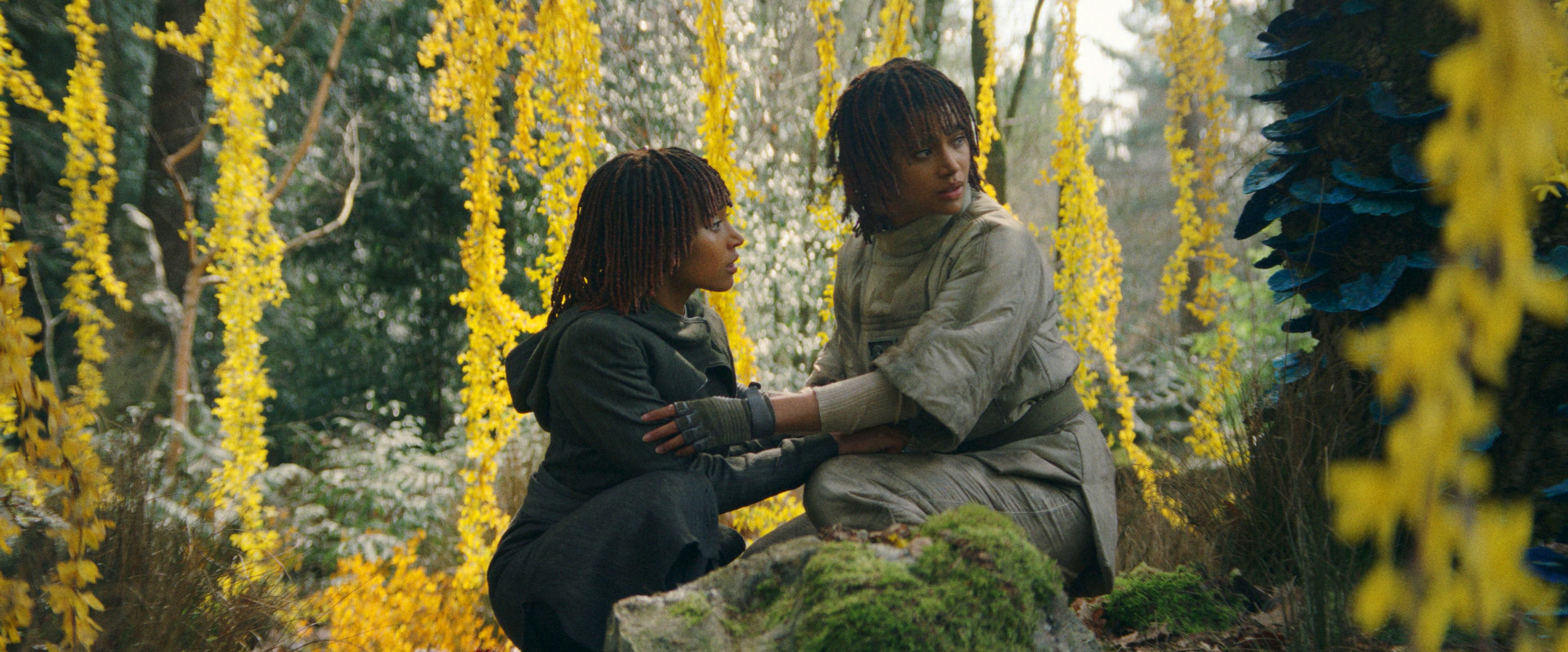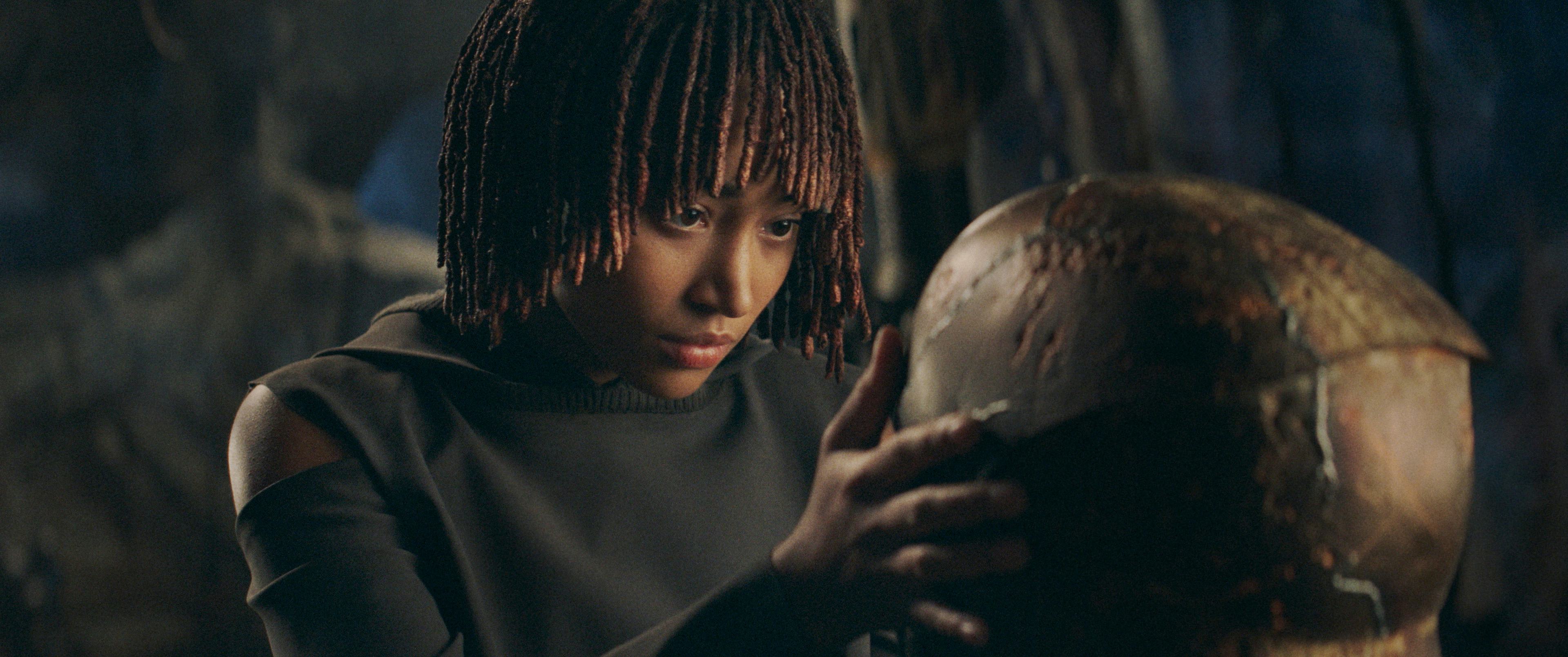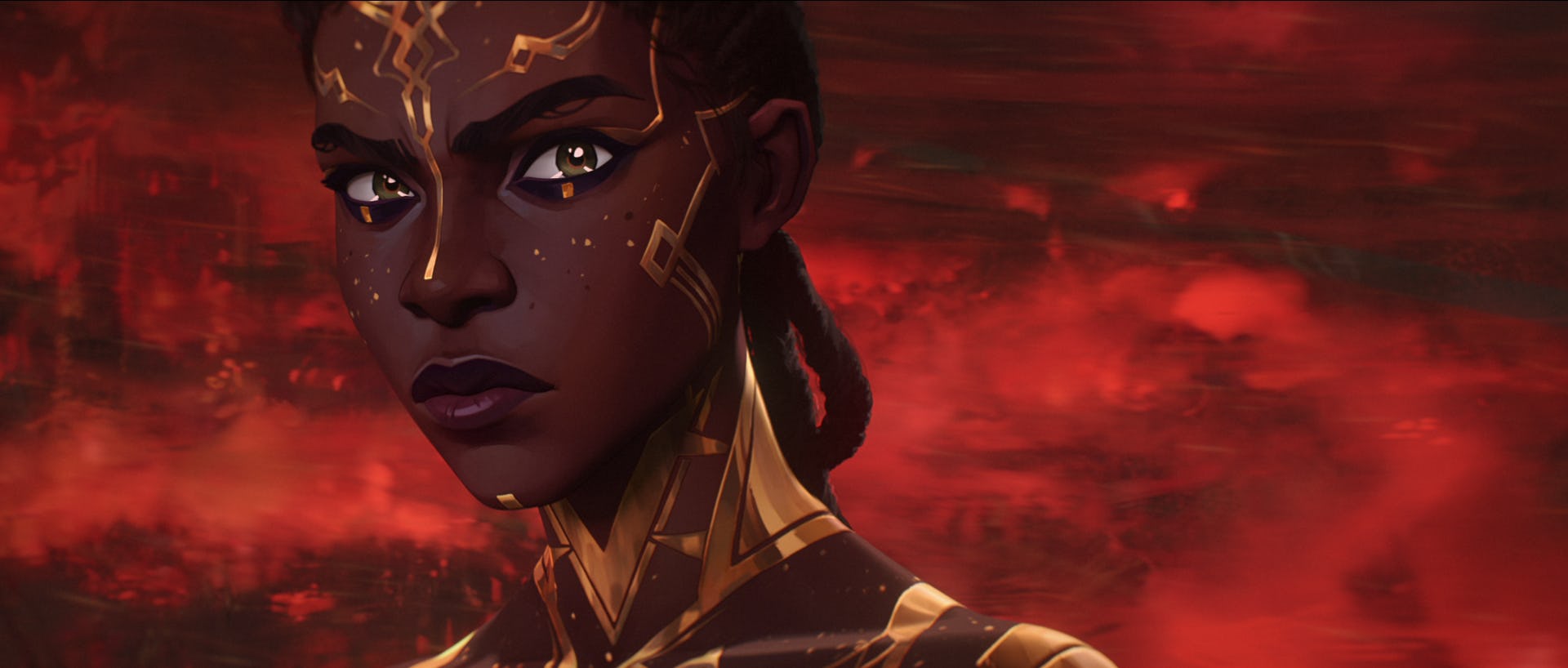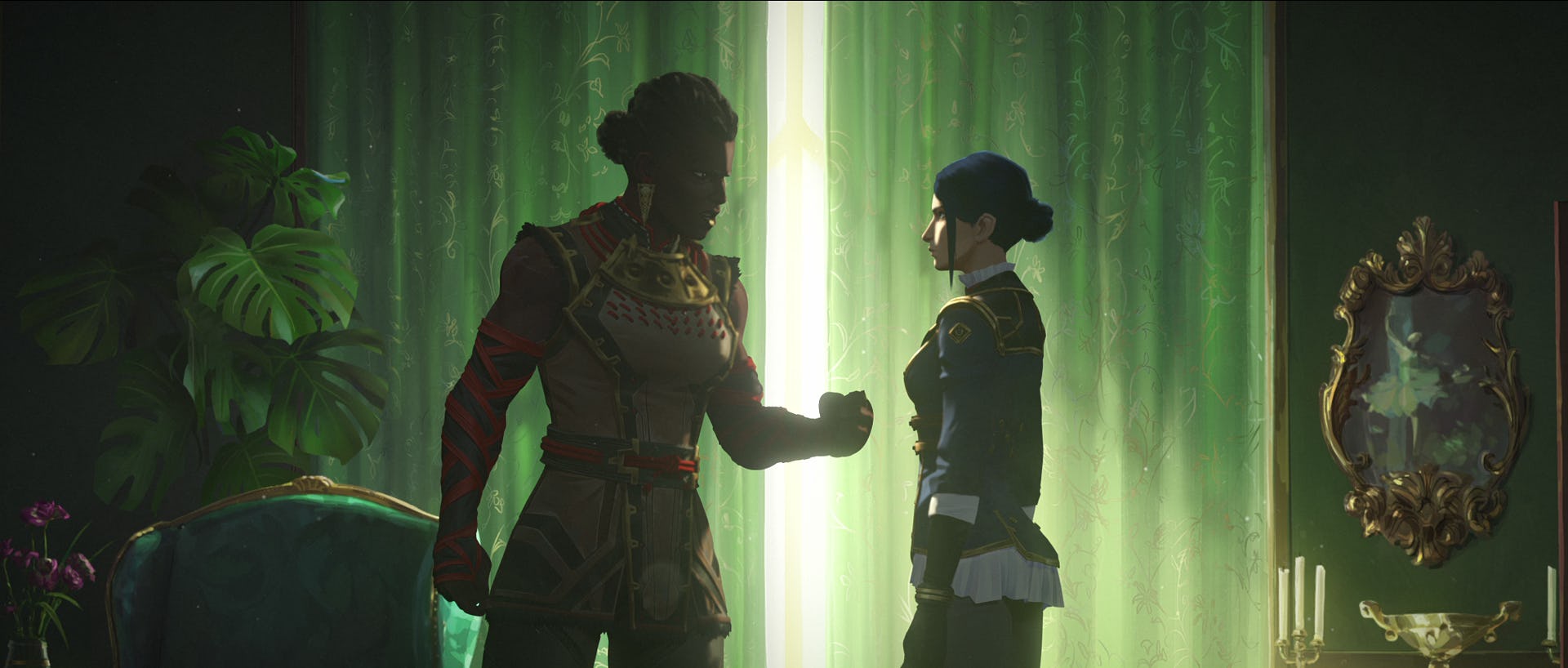
Science fiction has long been considered the genre where anything can happen and everyone is welcome. For all the possibilities inherent in that brief, though, it’s taken a while for the biggest names in the game to catch up.
Star Wars is just one franchise that’s made major strides in the past 10 years, slowly but surely filling its galaxy with more meaningful diversity. Its efforts reached a new high in 2024 with The Acolyte — the first live-action Star Wars project to focus on a Black female protagonist. Amandla Stenberg starred as twin siblings on opposite sides of the battle between light and dark, and the cast surrounding the actor was the most diverse in franchise history. It was just one of a handful of sci-fi projects championing a new kind of hero — given the genre’s propensity to mishandle, sideline, or outright erase Black femme characters, it felt like the beginning of a new era.
Alongside the latest season of Arcane, which bowed on Netflix this November, The Acolyte was poised to fix a major blindspot in sci-fi. Each series began on a promising note, delivering the nuanced representation that Black audiences had long been asking for. But by the time each came to an end — one via blindsiding cancellation, and the other with a disappointing season finale — all that potential went down the drain.

Plenty of ink has been spilled on The Acolyte’s cancellation and the circumstances that might have informed it. Per Deadline, it was low viewership that ultimately doomed the series. But Disney has always been wary of rocking the boat, and canceling The Acolyte seemed like the company’s latest attempt to appease less-tolerant fans. The Acolyte was not without its flaws, but the backlash it faced was disproportionate no matter how you slice it. Paired with Disney’s failure to stand behind the series — or even to give it a chance to fulfill its potential — and it’s clear that The Acolyte’s cancellation was about more than low numbers.
Either way, Disney’s attitude sets a dangerous precedent. For all its posturing, the studio doesn’t actually seem interested in genuine representation, and that disinterest can be felt across the board. In 2020, the entertainment industry pledged to address issues of equity and inclusion in film and television, hire more diverse voices to tell their stories, and feature actors of color more prominently. The past four years have seen studios and streamers slowly renege on that pledge, and in 2024, they’re less committed to diversity than ever before.
Nowhere is that more apparent than Arcane. While the League of Legends series is a revelation when it comes to it queer themes and depictions of mental illness, it leaves a lot to be desired where its characters of color are concerned. Its second season was especially disappointing for Black characters like Mel Medarda (Toks Olagundoye), her mother Ambessa (Ellen Thomas), and Ekko (Reed Shannon). While each are major drivers of the plot, Arcane primarily uses them to fulfill the emotional arcs of other characters.

By the time the series comes to an end, so much potential is utterly wasted in favor of convenient (and harmful) tropes. So many stories feel unfinished, particularly threads concerning Mel and Ekko. And what’s worse, the shepherds of those stories don’t seem at all phased by fans’ disappointment.
Arcane writer Amanda Overton addressed concerns about Mel and Ekko’s development with Inverse’s Shannon Liao, but she seems to have taken the wrong lessons from the backlash. “When you leave an audience wanting more, you’ve done your job as a writer,” Overton explained. “If [fans] care so much about a storyline that they want more out of it, then I’m like, ‘Go, imagine what happens next. Write your own story ... You tell us what happens next.’”
There are so many issues with that statement, but the most glaring is Overton’s blasé approach to Arcane’s most vulnerable characters. Arcane is the kind of show that’s in direct conversation with its fandom: its creators are often looking for ways to reward fans or challenge their expectations. That’s most obvious when it comes to characters like Vi (Hailee Steinfeld) and Caitlyn (Katie Leung), whose romance evolves across the show. Overton and series creator Christian Linke worked hard to craft a story that would satisfy fans, and for better or worse, Arcane doesn’t leave any loose ends there. Mel and Ekko’s arcs, meanwhile, don’t get the same consideration — but rather than owning up to that blunder, Overton has charged fans with completing their stories.

Overton’s presumption sends a clear message. Characters of color have long felt like afterthoughts, especially in the realm of science fiction. Though there’s more diversity in the genre than ever before, it isn’t enough to simply create the characters that fans want to see. Said characters need to feel like people: fully realized, depicted with care, and treated with the same respect as their white counterparts. Anything to the contrary is irresponsible, as that attitude also gives the toxic sects of fandom an excuse to dismiss those characters in kind.
It shouldn’t fall to fans to create the representation they deserve, or to advocate for the projects that make them feel seen. Unfortunately, that’s one issue we’re no closer to fixing in 2024 — and though it’s affecting every genre, from romance to YA fiction, this year’s sci-fi projects had the chance to ease that burden. The Acolyte could have pushed sci-fi into a more progressive era, had Lucasfilm and Disney rallied behind the series. Arcane also had plenty of potential, but its creators dropped the ball when it mattered the most. This year has seen the genre regress in a major way, and there’s no telling how (or if) future sci-fi projects can pick up the slack.







